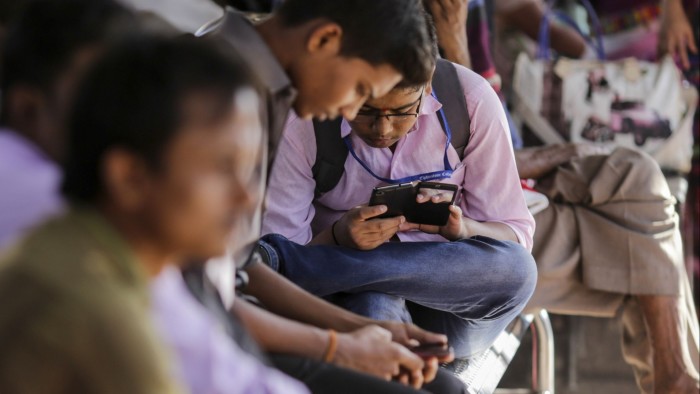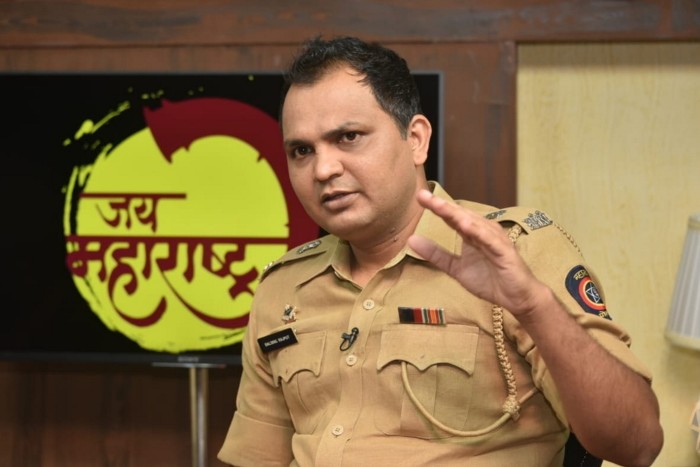India fights back against soaring digital fraud

Roula Khalaf, Editor of the FT, selects her favourite stories in this weekly newsletter.
This article is the latest part of the FT’s Financial Literacy and Inclusion Campaign.
Maria was juggling the hundred little tasks that arise between waking up and commuting to work in Mumbai, when her phone started ringing and wouldn’t stop. The repeat caller said he was from her network provider Vodafone — and if she didn’t provide documentation to prove her identity right now, her Sim would be blocked.
The 54-year-old office worker, identified by another name at her request, was about to join the legion of Indians to fall victim to sophisticated digital fraud in recent years.
She couldn’t understand the gruff voice at the other end of the line and his repeated calls were making her late. In frustration, Maria handed the phone to her son, who did as the caller asked. In hindsight, says Maria, “that was a mistake”.
Within 72 hours, fraudsters had emptied her savings account and maxed out her credit card, taking a total of Rs330,000 (now worth almost $4,000).
Maria had never heard of these sorts of scams before — and experts say thieves are making off with millions of rupees a year on the back of gullible victims.
“The rise in cyber crime cases is tremendous,” said Balsing Rajput, Mumbai’s deputy commissioner of police for cyber crime. With many Indians using smartphones and digital banking for the first time, “the lack of awareness of the people is being exploited by the criminals”.

India’s development of a super-fast digital payments system and enthusiastic embrace of online banking in the past decade have put it at the vanguard of technologically enabled financial inclusion.
But the rapid progress has also left law enforcement agencies struggling to keep up, and regulators rushing to improve financial literacy.
Of the almost 53,000 cyber crime cases registered in 2021, the latest data available, over 60 per cent were frauds, according to the National Crime Records Bureau. But the true level is probably much higher, as many minor frauds go unreported.
Nearly half of frauds committed involving Rs100,000 ($1,200) or more in the last fiscal year were classified as “card/internet” frauds by the Reserve Bank of India. That’s up from just over one-third in 2020-21.
India’s Unified Payments Interface was launched in 2016, allowing instantaneous money transfers by individuals and businesses. The hugely popular utility recorded over 10bn transactions in August 2023 alone, and is widely used for small payments to street vendors or friends, for example.
Digital banking has also gained traction, particularly after prime minister Narendra Modi’s government abruptly withdrew certain bills from circulation in 2016, forcing many who had never had accounts to open them, so they could deposit soon to be worthless cash. As UPI and digital banking has grown, so has cyber fraud.
“Around the world the growth of digital payments technology is a powerful tool for greater financial inclusion,’ says Aimée Allam, executive director of the FT’ Financial Literacy and Inclusion Campaign. “But with it comes greater exposure to non-traditional forms of fraud and theft. The more aware people are of those risks, the better they can protect themselves.”
The fraudsters who targeted Maria were exploiting the ease of digital banking and their victim’s lack of awareness. To access her accounts, Maria believes the fraudsters reset her password, authenticating it through “one time passwords” sent to her mobile. The crooks had conned her son into allowing them to clone her sim card, allowing them to access those OTPs.
Maria approached the police, who directed her to Mumbai’s cyber crime division. Although they noted her case, there was no follow up. Rajput said cases are often neglected by overwhelmed officers: “There are some malpractices in the police, they do not register sometimes.”
Nonetheless, India is fighting back. Rajput said that running a cyber crime helpline in the state of Maharashtra, where the financial capital Mumbai is located, has led to anywhere between Rs500,000 to 1mn worth of fraudulent transactions being frozen per day.
But, he adds, improving public understanding of fraud risks is critical to prevent crimes from happening in the first place.
Although India’s central bank downplayed fraud risks as involving “insignificant” amounts or numbers of transactions, it also told the FT that “inadequate customer awareness is a key contributory factor” that enables digital fraud.
People who are older, or live in rural areas, are a particular focus for education efforts. According to the latest countrywide financial literacy survey by the National Centre for Financial Education, completed in 2019, people aged 18-29 are the most financially literate group while urban respondents scored better than their rural counterparts.
Aside from tightening regulatory requirements on banks’ payment systems, the central bank has launched multiple “omni-channel public awareness campaigns”, and it has delivered digital finance training to everyone, from teachers in northern Uttar Pradesh to the Gujarat Girls Battalion. It holds an annual financial literacy week — this year’s was under the slogan, “good financial behaviour, your saviour!”
ICICI Bank is among the commercial lenders that have rolled out video campaigns, some starring Bollywood actors.
Maria, who got back only half of her savings and had to pay her bank for the losses on her credit card, was left badly shaken by the digital robbery. The sound of her mobile ringing “was a nightmare,” said Maria. “I was very scared for that whole month, thinking these fraudsters were calling.”
But now she uses her experience to warn others: “I’ve educated other people also — I was the victim of this, so be careful.”


Comments